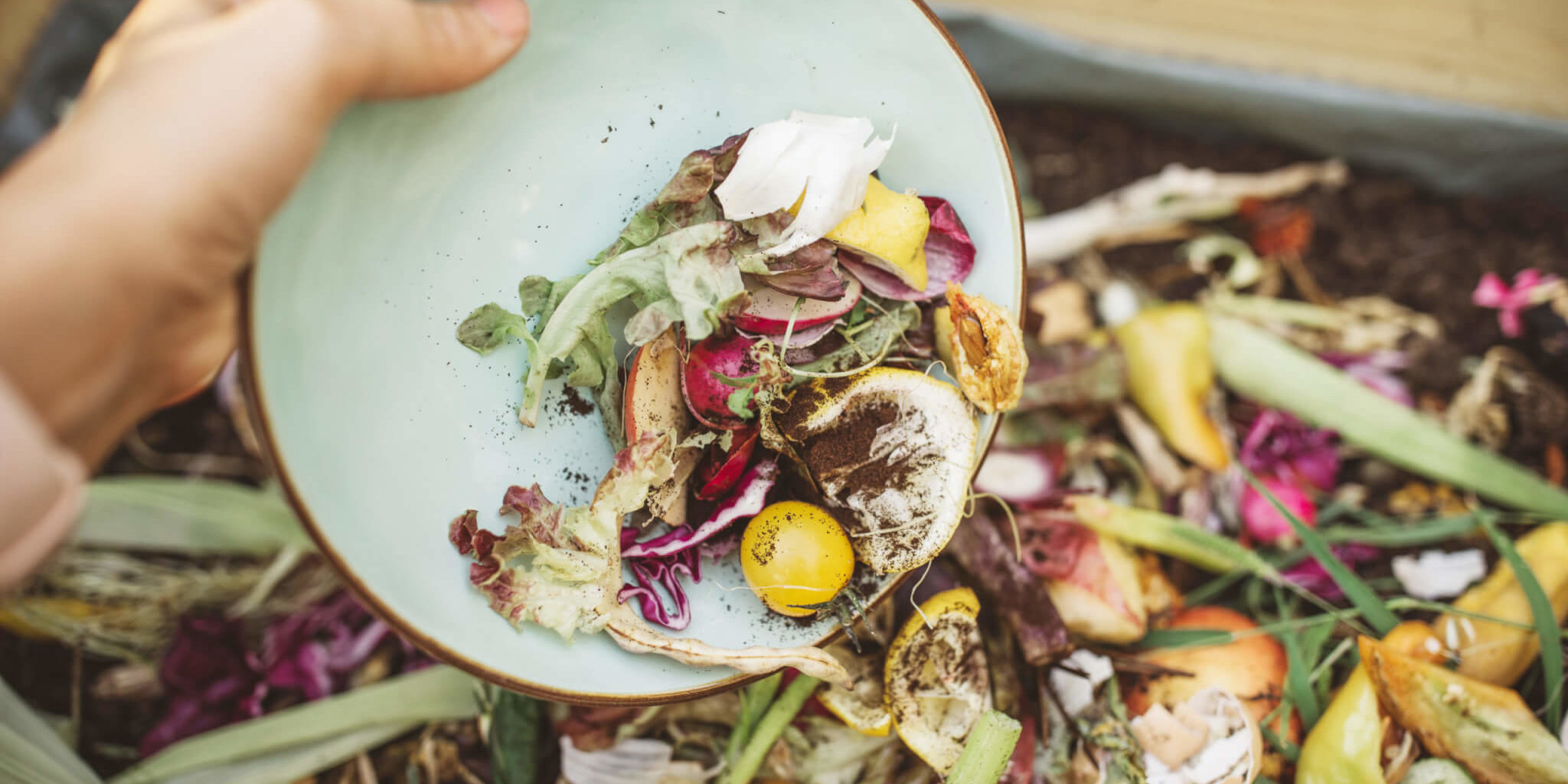According to the Environmental Protection Agency (EPA), food scraps and yard waste, or what’s called organic waste, currently make up 20-30% of what we throw away. This can all be composted instead of piling up at a landfill. If organic waste is delivered to a landfill, it’s buried under heaps and heaps of garbage, decomposing without exposure to oxygen, which causes it to release methane, a harmful and potent greenhouse gas. Luckily, there’s an easy solution here—composting!
What is composting?
Composting is collecting a pile of organic materials, like food scraps and yard waste (see below for a full list of what can and cannot be composted), that eventually decomposes into a soil-like substance that’s used to help plants grow. When you properly collect those food scraps and yard waste, microorganisms in the pile break them down and transform them into a substance that’s fluffy, dark, and full of nutrients, similar to soil. That fluffy substance can then be used as mulch in a garden or for potting plants.
What are the benefits of composting?
Composting enriches soil, reduces the need for chemical fertilizers, sparks the production of beneficial bacteria that break down organic matter, reduces methane emissions from landfills, and lowers your carbon footprint. What’s not to love?
How do I compost?
There are a couple options.
- All you need is a compost bin and a collection site. Most cities provide a green waste bin where you collect approved food scraps, food-soiled paper, and yard waste. Once a week, we roll our green waste, recycling, and trash bins out to the curb where our sanitation service picks up and disposes of the waste correctly. If this isn’t an option where you live, check for local businesses or farmer’s markets that collect compost and you can drop yours off weekly.
- Make your own compost pile at home and use it in your garden. Head here for a complete guide to composting at home.
What to compost: (see below for exceptions)
- Fruits & veggies
- Eggshells
- Coffee grounds and filters
- Tea bags
- Nut shells
- Shredded newspaper
- Cardboard
- Paper
- Yard trimmings
- Grass clippings
- Houseplants
- Hay and straw
- Leaves
- Sawdust
- Wood chips
- Cotton and wool rags
- Dryer and vacuum cleaner lint
- Hair and fur
- Fireplace ashes
- Halloween pumpkins
What not to compost and why:
- Black walnut tree leaves or twigs: Release substances that might be harmful to plants
- Coal or charcoal ash: Might contain substances harmful to plants
- Dairy products (e.g., butter, milk, sour cream, yogurt) and eggs:* Create odor problems and attract pests such as rodents and flies
- Diseased or insect-ridden plants: May transfer disease or surviving insects back to other plants
- Fats, grease, lard, or oils:* Create odor problems and attract pests such as rodents and flies
- Meat or fish bones and scraps:* Create odor problems and attract pests such as rodents and flies
- Pet wastes (e.g., dog or cat feces, soiled cat litter):* Might contain parasites, bacteria, germs, pathogens, and viruses harmful to humans
- Yard trimmings treated with chemical pesticides: Might kill beneficial composting organisms
*Check with your local composting or recycling coordinator to see if these organics are accepted by your community curbside or drop-off composting program.
Let’s try our best to do our part for the planet!






